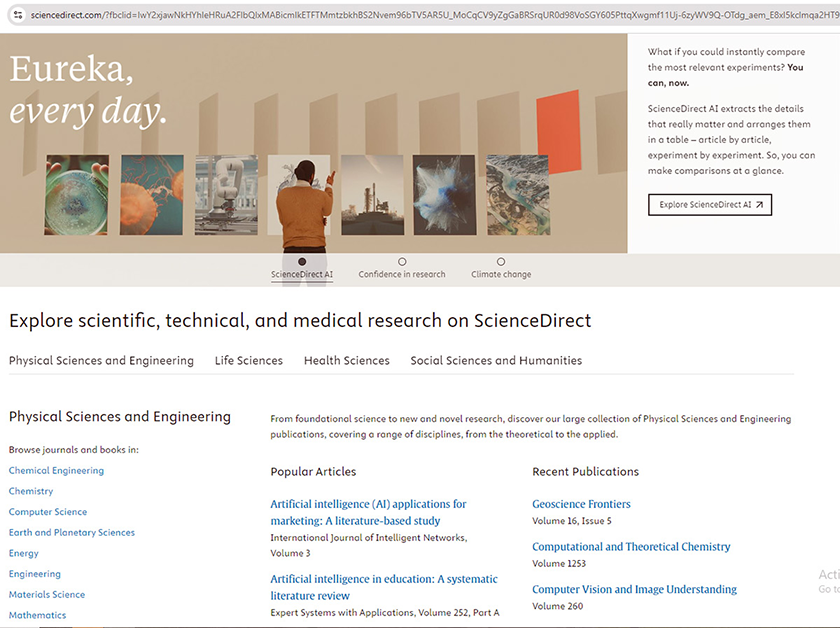Dr Subhankar Das, a lecturer and researcher at DTU, has recently been appointed to the editorial board of the journal Learning & Instruction.
This marks an important milestone in Dr Das’s research career and highlights DTU’s growing effectiveness and reputation in international academia and research, as he is the first person from Vietnam to serve on the editorial board of this journal.
“Being appointed to the editorial board of Learning & Instruction is a great honor and something I can be proud of,” Dr Das explains. “The journal focuses on high-quality research in the educational sciences, particularly on learning, teaching, and cognitive development. Learning & Instruction is considered one of the world’s leading journals in this field, with a deep and broad influence on research trends and new approaches to education. It contributes to the development of modern education based on empirical research, innovation, and creativity.”

Dr Subhankar Das at DTU
Learning & Instruction is a prestigious international journal published by Elsevier B.V. since 1991. With an impact factor of 6.2, it ranks among the highest in educational research and is placed in the Q1 group - the world top 25% of education journals.
What sets this journal apart is its combination of rigorous scientific standards and broad research scope, encompassing both international and interdisciplinary elements. Learning & Instruction covers a wide range of cultural contexts, theoretical perspectives, and research methodologies - from quantitative studies to qualitative analyses. The journal explores learning across the entire human lifespan, from infancy to adulthood, offering a comprehensive perspective rarely found in other publications.
Research published in Learning & Instruction not only enriches academic discourse but also directly influences educational policies, curriculum development, and teaching practices worldwide. With an H-index of 153 and over three decades of impact, the journal has become a respected academic platform that bridges pioneering research with educational innovation in practice. It plays a vital role in shaping consciousness and enhancing learning effectiveness globally.
Currently a lecturer and researcher at the DTU SouthStar Management Institute (SMi), Dr Das possesses extensive academic capabilities and diverse professional experience spanning from India to Vietnam. He has conducted many years of research in fields such as digital innovation, the Metaverse, generative AI, sustainable development, and information management.

Learning & Instruction, published by Elsevier, is one of
the world’s most prestigious journals in the educational sciences
Dr Das has been recognized with 3,392 citations on Google Scholar and 1,290 citations on Scopus. He has published 17 papers in Web of Science-indexed journals (SSCI, SCI, SCIE, ESCI), 59 papers in Scopus-indexed journals, 6 papers in ABDC-ranked journals (including 2 A*, 2 A, 1 B, and 1 C), and 4 papers in ABS-ranked journals (2 and 3). He has co-authored seven books and is sole author of one book indexed in Scopus, published by Springer, Taylor & Francis, and IGI Global.
“Alongside my quality research results, my editorial leadership was an outstanding factor in my appointment to the editorial board of the Elsevier journal Learning & Instruction,” Dr Das explains. “I have previously served as editor for several books indexed by Web of Science and Scopus with world-renowned publishers, including Springer, Palgrave, and CRC Press. Moreover, I have contributed extensively as a reviewer for leading journals in educational psychology, human–computer interaction, and management studies.
“I believe Learning & Instruction selected me based on a great many dimensions: research excellence, substantial editorial experience with top academic publishers, strong engagement in international collaboration networks across Europe and Asia, and, most importantly, the ability to bring a Southeast Asian perspective into global educational discourse.
“This appointment allows me to bridge the gap between Eastern and Western educational scholarship while advancing research on contemporary learning challenges through deep, cross-cultural inquiry. Like a ‘guardian of knowledge’, this position transforms me from a contributor of knowledge into a custodian and disseminator of global educational knowledge. This honor comes with an immense responsibility.”
As a member of the editorial board, Dr Das is responsible for upholding the journal’s rigorous academic standards and evaluating whether research works have the potential to shape global educational practices and policies.
Beyond peer review, he also identifies emerging trends in the learning sciences, mentors young researchers, and ensures that diverse methodological and cultural perspectives are represented in academic publications. Working at DTU, Dr Das will serve as a bridge between international academia and the Vietnamese education environment, thus bringing high-quality learning-science research closer to the scholarly community and fostering interdisciplinary and international collaboration.
Dr Das appreciates DTU’s supportive research environment and policies. “DTU has played a crucial role in helping me reach this milestone through its comprehensive support policies, encouragement of international research collaboration, and flexible resources that enable me to work with scholars worldwide,” he affirms.
“Most importantly, DTU’s vision to become a research-oriented university perfectly aligns with my own academic aspirations, creating a strong synergy between institutional goals and personal ambition. The robust research ecosystem at DTU has transformed potential into tangible achievements, allowing every scholar to realize their academic passions now and in the future.”
(Media Center)